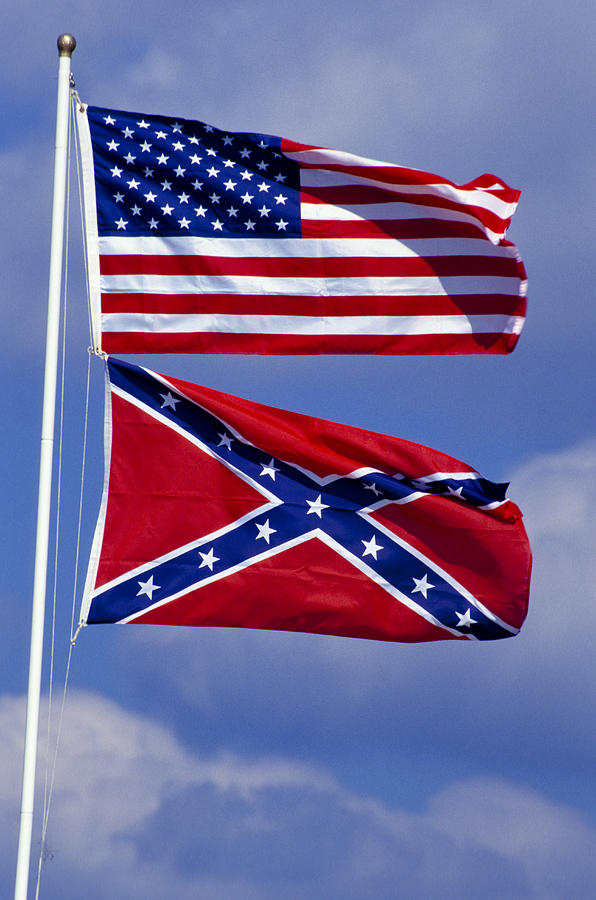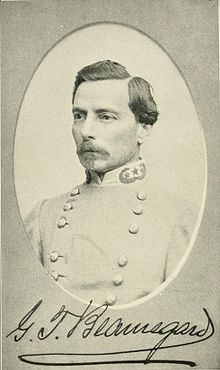In the early hours of this very morning,
another monument of American Civil War History was
unceremoniously removed from its pedestal
in the city of New Orleans.
The city council decided that the statue is,
symbolic of the glorification of slavery and is one
of four Civil War monuments that has been
slated for removal by the city.
As an American born and raised in the North,
I am appalled by the actions of the New Orleans city council,
which has based its decision on a desire to erase
"the lost cause of the Confederacy".
In the words of Mayor Mitch Landrieu,
"We must not allow the Confederacy to be put on a pedestal."
Well, like it or not, your Honor, the Confederacy, like the
Confederate flag, which has also come under attack in recent years,
is part of the history of the United States of America.
As reprehensible as it was, slavery, at one time in America,
was a legal business practice. A so-called, "necessary evil".
Today we abhor the very idea of human beings being
bought and sold and forced to be slaves, and yet,
many people in this century see no wrong in taking the
human rights of life, liberty, and the pursuit of happiness
away from defenseless unborn children.
Many today who are crying out to right the wrongs
of the past by demanding the removal of Civil War
statues with the excuse that they are symbolic
only of slavery and the suppression of black Americans,
are not only woefully ignorant of the real causes for
the Civil War between the North and the South, but,
they also fail to realize that many of the babies aborted
in this nation today are black Americans.
Many of these same people claiming to be "offended"
by a white man on a statue advocate the mass murder of
innocent unborn babies without batting an eye. These
same people are almost always associated with the
Democrat Party, which has now become the official
endorser of unchecked infanticide in America.
The Democrat Party proudly extols the warped beliefs
of eugenicist and Planned Parenthood founder,
Margaret Sanger, who thought that the black race
was inferior and that black babies should be
exterminated at birth.
Planned Parenthood still champions Sangers' cause and
this is why they have set up their abortion clinics in every major
U.S. city and large town with a predominantly black population
across America today.
While I realize that slavery was a terrible institution which
should never have been allowed in our nation, the legalization
of abortion, I feel, is far, far, worse.
While not all slaves were mistreated by their owners
with some becoming like extended members of the family,
a slave sometimes had a chance to escape their fate,
especially after the establishment of the Underground Railroad.
An unborn baby has become an endangered species in America
today, and has absolutely no chance of escaping from the willful
"choice" made by their mother and performed by an abortionist.
Abortion not only involves the deliberate taking of human
life, but, destroys the very likeness and image of God Himself.
General PGT Beauregard Equestrian Statue
New Orleans, Louisiana
Sculpted By Andrew Doyle
Who was PGT Beauregard?
Born on May 18, 1818 on the Contreras sugar plantation in
Saint Bernard Parrish in Louisiana, Pierre Gustave Toutant Beauregard
was a man of French Creole descent. He was a solider, a civil engineer,
a writer and a civil servant.
During the Mexican War (1846-1848) Pierre Beauregard used the
skills he had learned from civil engineering classes at West Point
while on reconnaissance missions against the forces of the
wily Mexican General Santa Anna.
During the Civil War in America, he became the Commander
of the Western Theater of the war. He led the charge at the
bloodbath at Shiloh in Tennessee, and later at the Siege
of North Corinth in Mississippi.
Although he fought on the side of the South, Colonel Beauregard
was often at odds with Confederate President Jefferson Davis.
He and General Joseph H. Johnston were instrumental
in convincing Davis that the South was going to lose the war.
In April of 1865 General Johnston surrendered most of the
remaining forces of the Confederacy-including Colonel Beauregard
and his men- to Union Major General William T. Sherman.
After the war, Colonel Beauregard returned to Louisiana. He later
became an executive on the railroad and grew quite wealthy
as the promoter of the Louisiana Lottery.
After receiving a pardon from President Andrew Johnson,
Beauregard later regained the right to run for public office
by President Ulysses S. Grant in 1876. He served as the
adjutant governor for the Louisiana State militia.
He was also an active member of the Reform Party,
an association of New Orleans businessmen who
advocated civil and voting rights for newly freed black slaves.
Pierre Beauregard was a published author who wrote
extensively about his war time experiences in his books,
"Principle and Maxims of the Art of War"
"Report on The Defense of Charleston"
and, "A Commentary On The Campaign and
the Battle of Manassas."
When a dreadful epidemic of yellow fever swept through
the city of New Orleans in 1879, taking the lives of many people,
including former Confederate General John Hood Bell, his
wife, Anna, and the couple's eldest child, daughter, Lydia,
Colonel Beauregard sought to help the ten remaining Hood
orphans by using his influence to have his former
comrade's memoirs published, with the proceeds from
the sale of the book going to the children.
Pierre Beauregard, valiant soldier and statesman,
died in his sleep on February 20, 1893 in New Orleans.
Although ignorance of the truth and the ugly blight of
political correctness has struck once again, this time under
the cloak of night with the removal of this man's statue
from a park in the same city where he lived and died,
Colonel Pierre Beauregard was an American citizen and a
proud son of the South who served this nation during
the Mexican War with honor and distinction.
In the Civil War, he fought for what he
believed in as did those who fought for the North.
Although Colonel Beauregard was a man of his times,
his life story provides a window of valuable insight
into America's past and should not be forgotten.





No comments:
Post a Comment